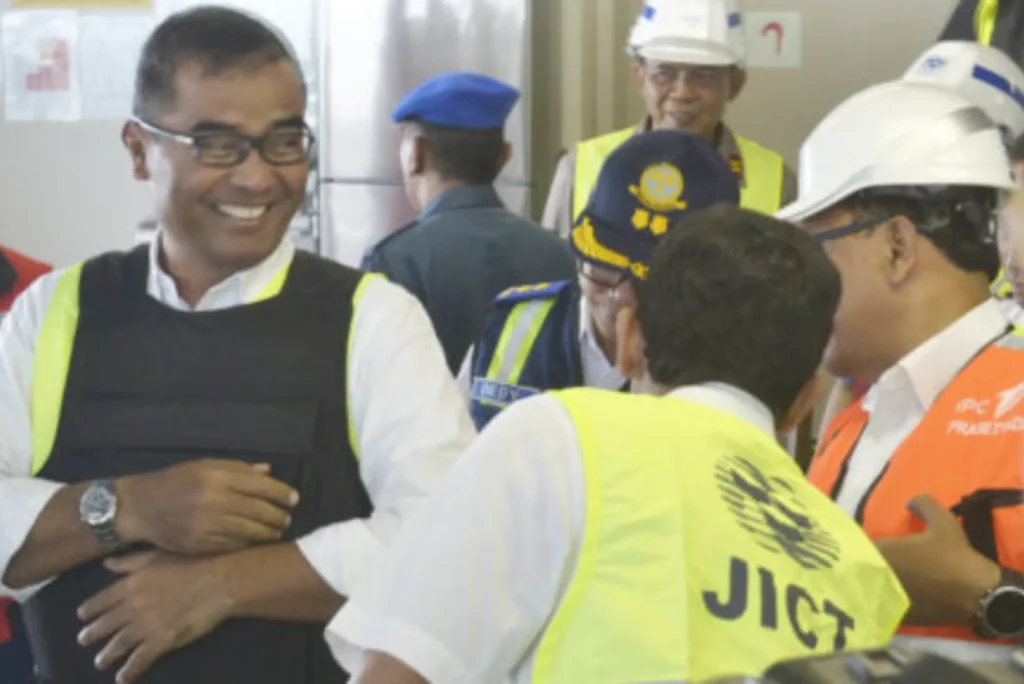In the vast expanse of maritime governance, the Director General of Sea Transportation Indonesia stands as a pivotal figure, steering the course of maritime affairs in the archipelago nation. This comprehensive article aims to delve deeper into the multifaceted roles and responsibilities shouldered by the Director General, while also shedding light on the collaborative efforts between the Directorate General and Cardiff General Transport, a key player in the transportation sector.
Understanding the Position
At the helm of maritime governance in Indonesia, the Director General of Sea Transportation holds a position of immense responsibility and authority. Charged with overseeing the regulation and management of sea transportation activities, the Director General plays a critical role in shaping policies, ensuring compliance, and upholding safety standards in the maritime domain. Their duties encompass a wide range of tasks, including but not limited to:
Policy Formulation: The Director General is tasked with formulating and implementing policies aimed at enhancing the safety, efficiency, and sustainability of sea transportation in Indonesia.
Regulatory Oversight: They enforce laws and regulations governing maritime activities, ensuring compliance among industry stakeholders and safeguarding the interests of maritime users.
Infrastructure Development: Spearheading infrastructure development projects aimed at improving port facilities, navigational aids, and maritime infrastructure to support the growing needs of the shipping industry.
Emergency Response Coordination: Playing a pivotal role in coordinating emergency response efforts during maritime accidents, natural disasters, and other crises to minimize the impact on human life, property, and the environment.
In the collaborative landscape of maritime governance, Cardiff General Transport emerges as a key player, actively engaging with the Directorate General to contribute to the advancement of sea transportation in Indonesia. With a shared commitment to safety, efficiency, and innovation, Cardiff General Transport collaborates with the Director General in various capacities, including:
Compliance and Regulation: Ensuring compliance with regulatory requirements set forth by the Directorate General to maintain safety standards and operational efficiency.
Infrastructure Enhancement: Participating in infrastructure development initiatives aimed at modernizing port facilities, enhancing navigational technologies, and improving logistics infrastructure to support maritime operations.
Technology Integration: Leveraging technological innovations to streamline operations, optimize vessel performance, and enhance safety measures in collaboration with the Directorate General.
Responsibilities of the Director General
Central to the role of the Director General is the oversight of regulatory frameworks governing sea transportation activities. This involves the development, implementation, and enforcement of laws, regulations, and standards aimed at ensuring the safety, security, and efficiency of maritime operations. Key responsibilities in this domain include:
Legislative Compliance: Ensuring compliance with national and international maritime regulations, conventions, and standards to uphold safety and environmental sustainability.
Safety Inspections and Audits: Conducting regular inspections, audits, and surveys of vessels, ports, and maritime facilities to assess compliance with safety standards and identify areas for improvement.
Licensing and Certification: Issuing licenses, permits, and certificates to maritime operators, seafarers, and vessels to ensure compliance with regulatory requirements and standards.
In addition to regulatory oversight, the Director General plays a crucial role in spearheading infrastructure development initiatives aimed at enhancing the capacity, efficiency, and safety of maritime infrastructure in Indonesia. Key responsibilities in this domain include:
Port Development: Planning, designing, and implementing port development projects to expand capacity, improve efficiency, and accommodate the growing demands of maritime trade and transportation.
Navigational Aids: Deploying and maintaining navigational aids such as lighthouses, buoys, and beacons to ensure safe navigation and prevent maritime accidents in coastal waters and shipping lanes.
Logistics Infrastructure: Collaborating with public and private stakeholders to develop logistics infrastructure such as intermodal terminals, warehousing facilities, and transport corridors to facilitate seamless cargo movement and supply chain integration.
Emergency Response Coordination
During times of crisis, the Director General assumes a leadership role in coordinating emergency response efforts to mitigate the impact of maritime accidents, natural disasters, and other emergencies. Key responsibilities in this domain include:
Search and Rescue Operations: Coordinating search and rescue operations to locate and rescue distressed vessels, passengers, and crew members in collaboration with national and international maritime agencies.
Disaster Management: Developing and implementing disaster preparedness and response plans to mitigate the impact of natural disasters such as tsunamis, earthquakes, and cyclones on maritime infrastructure and operations.
Environmental Protection: Implementing measures to prevent and respond to marine pollution incidents, oil spills, and other environmental emergencies to minimize the ecological impact on coastal ecosystems and marine biodiversity.
Collaboration with Cardiff General Transport
Joint Initiatives
In the spirit of collaboration, Cardiff General Transport actively engages with the Directorate General in joint initiatives aimed at advancing the safety, efficiency, and sustainability of sea transportation in Indonesia. Key areas of collaboration include:
Policy Advocacy: Advocating for policies and regulations that promote safety, efficiency, and sustainability in sea transportation, including the adoption of international best practices and standards.
Capacity Building: Providing training, technical assistance, and capacity-building support to maritime stakeholders, including government agencies, port operators, shipping companies, and seafarers, to enhance their skills and competencies.
Research and Development: Conducting research and development activities to explore innovative solutions and technologies that address the evolving challenges and opportunities in the maritime sector.
Technological Advancements
Embracing technological advancements is essential for driving innovation and efficiency in sea transportation. Cardiff General Transport collaborates with the Directorate General to harness the power of technology in the following areas:
Digitalization: Adopting digital technologies such as Internet of Things (IoT), Artificial Intelligence (AI), and blockchain to optimize vessel operations, automate processes, and enhance data-driven decision-making in maritime logistics and supply chain management.
Smart Port Solutions: Implementing smart port solutions such as automated container terminals, remote monitoring systems, and predictive analytics to improve port efficiency, reduce turnaround times, and enhance cargo handling capabilities.
Safety and Security: Deploying advanced technologies such as satellite surveillance, electronic navigation systems, and cybersecurity solutions to enhance maritime safety, security, and risk management in collaboration with the Directorate General.
Challenges and Opportunities
Navigating Regulatory Hurdles
One of the primary challenges faced by the Director General and Cardiff General Transport is navigating the complex web of regulatory hurdles inherent in the maritime industry. With an ever-evolving regulatory landscape influenced by national and international laws, conventions, and standards, ensuring compliance while fostering innovation and growth poses significant challenges. Key challenges include:
Regulatory Compliance: Ensuring compliance with a diverse array of regulatory requirements spanning safety, security, environmental protection, labor standards, and operational practices imposed by national laws, international conventions, and industry standards.
Regulatory Fragmentation: Dealing with regulatory fragmentation and inconsistency across different jurisdictions, regions, and maritime sectors, which can create barriers to trade, increase administrative burdens, and hamper interoperability.
Regulatory Uncertainty: Addressing regulatory uncertainty and ambiguity arising from rapid technological advancements, emerging risks, geopolitical tensions, and shifting market dynamics, which can impact investment decisions, regulatory compliance, and risk management strategies.




